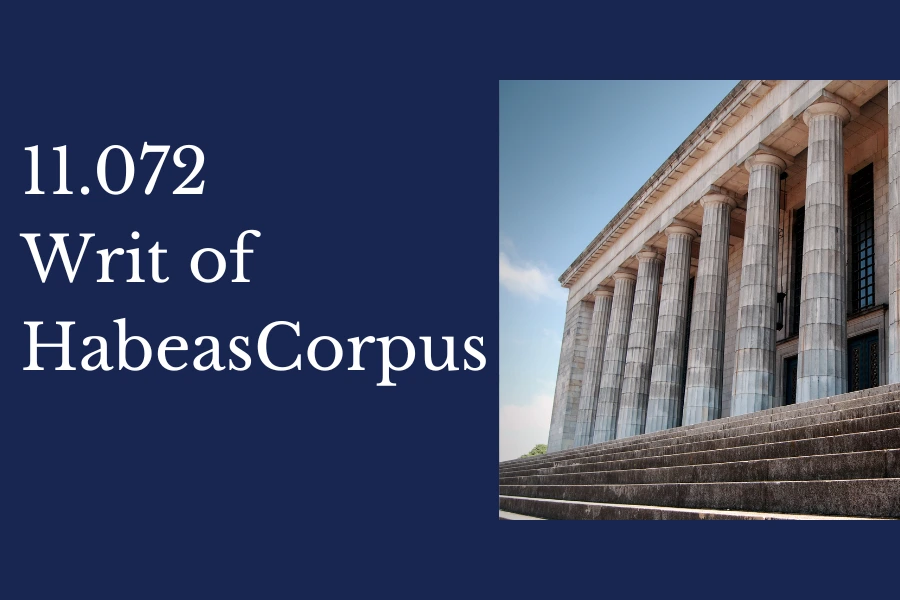
Recently, a member of our Facebook Group, “Winning Freedom for the Incarcerated in Texas”, asked an important question:
Can an 11.07 be filed in a case where the defendant took deferred probation, or is it not considered a finalized conviction?
When a loved one is incarcerated, navigating the complex legal landscape can feel overwhelming. Many families have questions about the different types of writs of habeas corpus and how they can be used to challenge convictions or probation orders
The short answer is no — an 11.07 writ of habeas corpus cannot be used to challenge an order of deferred adjudication. However, an 11.072 writ can be used.
What is an 11.072 Writ of Habeas Corpus?
An 11.072 writ is part of the same habeas corpus article in the Texas Code of Criminal Procedure but is specifically used to challenge orders of deferred adjudication or straight probation.
This makes it a crucial tool for those who received probation as part of their sentence.
Key Differences Between 11.07 and 11.072 Writs
Understanding the procedural differences between an 11.07 and an 11.072 writ can help you better advocate for your loved one.
Decision-Making Authority
11.07 Writ:
- The Texas Court of Criminal Appeals, the highest criminal court in Texas, ultimately decides on an 11.07 writ. Because it is decided by the highest court, any denial of an 11.07 writ is final and cannot be appealed.
- This writ is used for challenging finalized convictions, meaning cases where a judgment has been entered.
11.072 Writ:
- This writ specifically addresses cases involving deferred adjudication or straight probation, offering a pathway to challenge these specific types of court orders.
- An 11.072 writ is decided by the convicting district court. If denied, an 11.072 writ can be appealed to an intermediate court of appeals, offering another layer of review.
The Importance of Legal Guidance
Navigating the complexities of writs of habeas corpus can be daunting. While this article aims to provide clarity, it is essential to consult with a knowledgeable attorney who specializes in post-conviction relief in Texas. Legal experts can provide personalized advice and guide you through the process, ensuring that all procedural requirements are met.
If your loved one received deferred adjudication or straight probation, an 11.072 writ of habeas corpus might be the appropriate legal tool to challenge their court order. Unlike an 11.07 writ, which is used for finalized convictions and decided by the Texas Court of Criminal Appeals, an 11.072 writ is handled by the convicting district court and can be appealed if denied.
For families navigating these challenging legal waters, understanding the distinction between these writs is a critical first step. If you have more questions or need further assistance, don’t hesitate to reach out to our community or consult a legal professional.
Remember, you’re not alone in this journey. Together, we can advocate for justice and work towards winning freedom for our loved ones.
If you need personalized legal advice or assistance with filing an 11.072 writ, contact our post-conviction relief led by attorney Jacob Blizzard who is dual board certified in criminal appeals and criminal defense and Sarah Durham.

